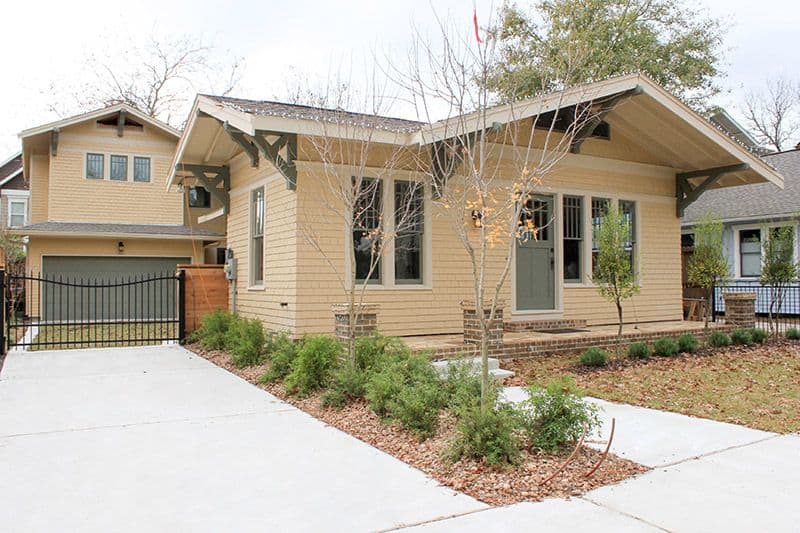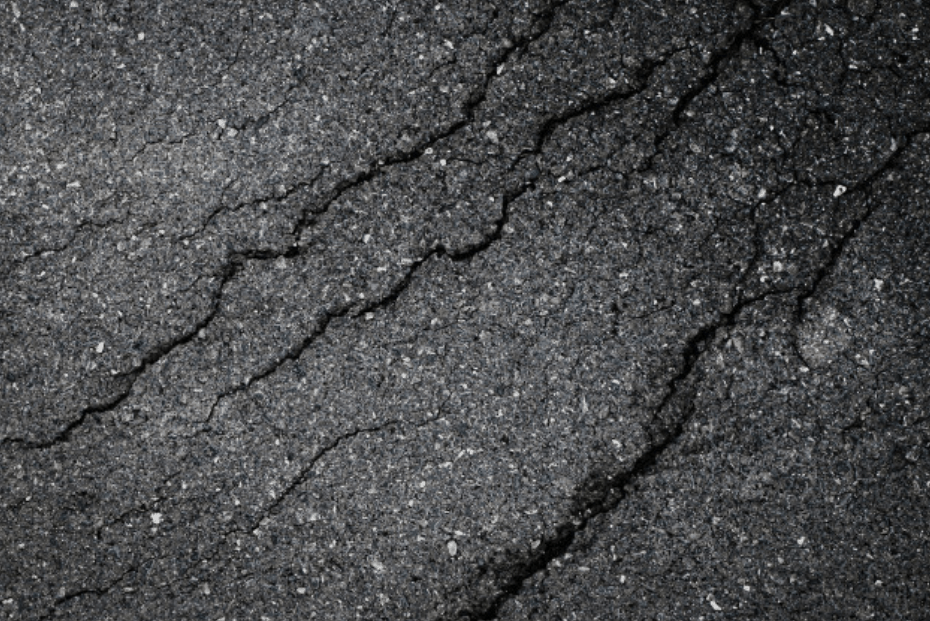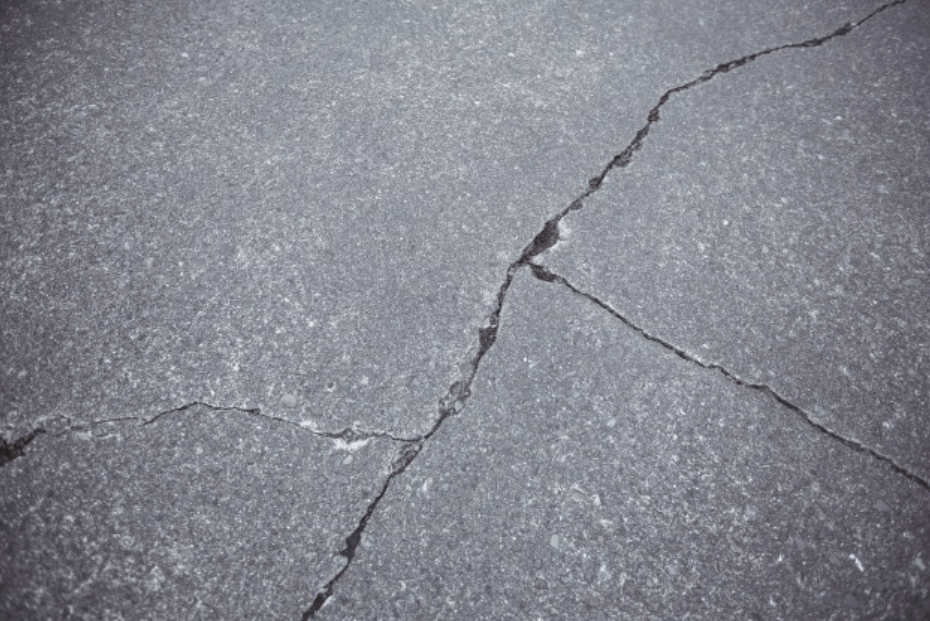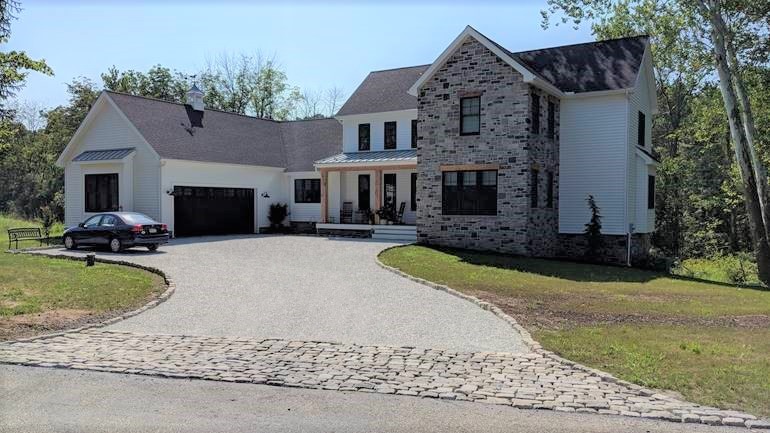
Asphalt and concrete driveways are the two most common types of driveways in America. From sprawling suburban areas to rural homes and country roads, it’s not uncommon to drive for miles without ever seeing a different type of driveway. But have you ever wondered how concrete and asphalt stack up against each other? Driveway performance is measured via a number of different factors and characteristics, some of which you might not have thought to take into consideration.
In case you’re looking to install a new driveway or update your old one, let’s have a look at how asphalt and concrete compare, as well as what other options might be available to you.
All About Asphalt

Asphalt is a black, tar-like substance that dries and hardens into a drivable surface. One of the main benefits of asphalt over concrete is that it cures faster than concrete does. It also happens to be less expensive and works very well in cold climates.
Hot climates and asphalt do not mesh well because the tar tends to get a bit hot and sticky in high temperatures. This can leave residue on your tires and even your shoes as well, and would not feel very good on your bare feet. It’s also easier to remove ice from asphalt than concrete. Asphalt does tend to develop cracks over time but the repair-job for that is seamless, and it just requires quick resurfacing if it gets too bad.
Some of the drawbacks of asphalt include the fact that you’re very stylistically limited when it comes to asphalt driveways. In fact, your only option is pretty much black. The edges on an asphalt driveway will also not be as straight, and it needs to be properly sealed to keep its durability. Asphalt is less durable than concrete, overall.
Concrete Considerations

Concrete has a variety of benefits that asphalt does not possess, but also has some drawbacks as well. Concrete is more flexible when it comes to design and color, allowing you to get a bit more creative with your install. It also comes out with neater, straighter edges than asphalt and is more durable as well.
Concrete is good for hot-weather conditions but will easily crack in cold weather. Concrete stains and discolors from automobile fluids that drip from our vehicles and become ugly over time. Salt and de-icers will damage a concrete driveway and concrete will hold a stain much more noticeably.
Concrete is also more expensive than asphalt and it cannot be resurfaced. Crack repair is also quite a bit more obvious in concrete than it is in asphalt.
Assessing Alternatives
If you’ve gone over the pros and cons of both concrete and asphalt but haven’t been swayed by either type of material, you might want to consider the alternatives. Although asphalt and concrete are the most common type of driveways, there are other options gaining steam rather quickly in the construction industry. Permeable pavers, for example, are taking the world by storm.
Permeable pavers, like the kind produced by TRUEGRID and others are the best alternative to asphalt and concrete driveways for several reasons. They offer just as much, if not more, stylistic variety than concrete and asphalt. With different colored aggregates to choose from, you can mix and match your favorite types of stones until you’ve got the ideal color pairing. You can also get really creative with the actual driveway design, and you can even create hidden driveways that lay beneath your lawn.
The installation time for a permeable paver driveway is approximately one day, and can even be done as a DIY project if you have a heavy vehicle around to compact the aggregate. Permeable pavers are made from 100% recycled plastic and allow water to pass directly through them into the soil below. This makes them the most eco-friendly type of driveway material by far and provides extra drainage to protect your home. TRUEGRID making sure everything from production to installation is as eco-friendly as possible.
Permeable pavers are more cost-effective than asphalt or concrete, with the upfront cost being lower as well as the maintenance needs. They are incredibly durable and will last longer than concrete or asphalt.
TRUEGRID Has the Best Driveway Alternatives to Concrete and Asphalt

If you’re ready to move on from your standard concrete or asphalt driveway, consider using TRUEGRID permeable pavers. They perform admirably in all facets of driveway performance and are much better for the environment as well as more cost-effective for you.
They also stand up well in both hot and cold weather, and can even eliminate any driveway flooding or erosion problems you have. When it comes to the perfect combination of aesthetic beauty, durability, cost-effectiveness, and overall performance, TRUEGRID’s permeable pavers can’t be beat.



